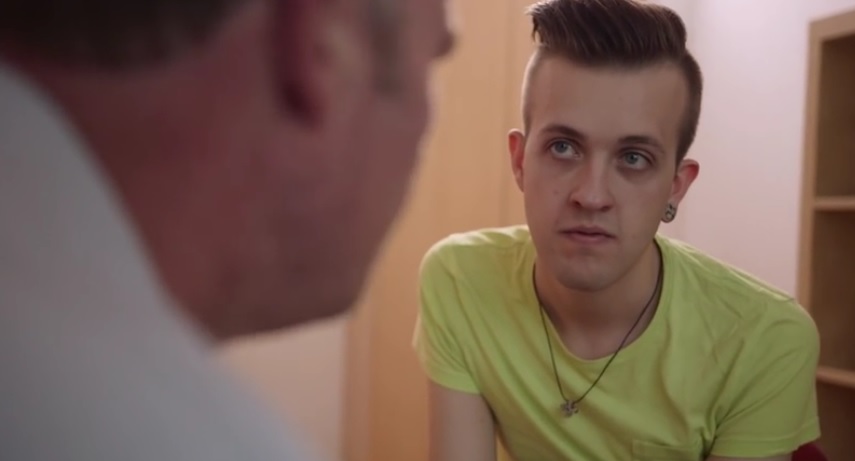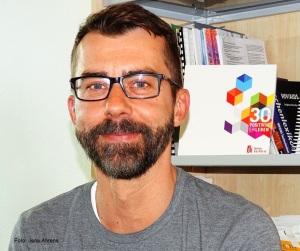
Talking to a stranger about sex, HIV and the fear of being tested? If this stranger is a professional like Jens Ahrens, then take heart. Jens works at the Berliner Aids-Hilfe e.V. In the interview, he explains how HIV test counselling works.
Jens, this is the first time we've met. Why could I talk to you openly about sex and risky situations?
Professional counselling has several advantages. It is anonymous, just like the rapid HIV test that usually follows. We also take each person as they are. We listen to their story without judgement. Nobody has to be afraid that we will judge them or give moral lectures. Last but not least, we are trained to ask the right questions and give competent answers.
What exactly are you asking?
Firstly, we talk about the reason for coming for the test. Some have a new relationship, others have themselves checked regularly. Some have a specific risk in mind and want clarity. We then look together at how high the actual risk of HIV infection was.
And if there was a risk?
Suppose a condom has slipped off. Then I ask how long ago the risk occurred. We can reliably rule out HIV after twelve weeks with the rapid test. The waiting time can be shortened with a laboratory combination test. I also ask my partner whether the positive sexual partner is taking tablets against HIV. Because as long as no viruses can be detected in the blood, transmission is unlikely. Of course, this information cannot be obtained with certainty if you do not know your sexual partner well.
What misconceptions about HIV do you encounter?
Many people overestimate the risk of infection. For example, they sometimes overreact when they find out that one of their sexual partners is positive. Sometimes it turns out in conversation that they were just making out and giving head without any sperm being involved. Then I can reassure them, because nothing can happen.
Is the reverse also true? Do some people underestimate the risks?
This also happens frequently. Many active people believe that they cannot get infected when fucking without a rubber. Unfortunately, this is wrong. The active partner can also become infected with HIV. There is also the misconception that HIV only affects older men.

Do many young gays think that only "old farts" have HIV?
Unfortunately, yes. Studies by the Robert Koch Institute show that HIV infections are currently detected particularly frequently in 20 to 29-year-olds.
What happens after the interview?
If there was a specific risk or if it is a regular check, the HIV test is carried out at the Berlin AIDS service organisation after the 15 to 30-minute consultation. Of course, only if this is expressly requested. During the rapid test, our doctor takes some blood from the finger. The test person then has to wait half an hour. We will inform you of the result in the subsequent consultation. In the laboratory test, blood is taken from the vein. This result is then available after one week.
What does the rapid test cost?
The local AIDS service centres handle this differently. In the Berlin test projects, the rapid test costs 15 euros. However, if someone tells us that they don't earn any money at all, we can waive this fee. Counselling, on the other hand, is free of charge everywhere in Germany.
Do you ever send people home without a test?
That happens. For example, when we were able to clarify that there was no risk. The conversation was therefore helpful for the person seeking advice in two ways: they learned to better assess their risk behaviour and I was able to allay their concerns about a possible HIV infection. Another situation in which a test is of little use is when HIV cannot yet be ruled out beyond doubt.
So should I wait until I seek help after risky sex?
On the contrary! Many gay men don't realise that they can still do something about a possible infection immediately after a risk. If it turns out that someone has had a real risk in the last 48 hours, we immediately send him to the PEP. If someone receives HIV medication at an early stage, this can prevent HIV infection.
In the second part of the interview with Jens Ahrens is about counselling after a positive test.
If you want to find out how such a test works, then watch the video with our test hero Tim at www.testhelden.info









